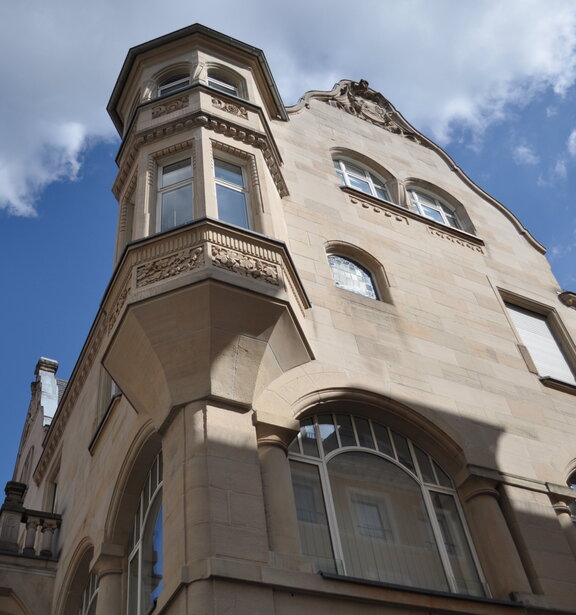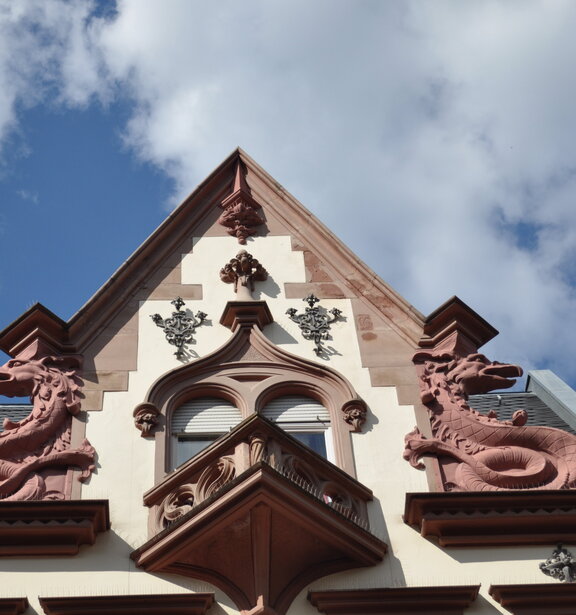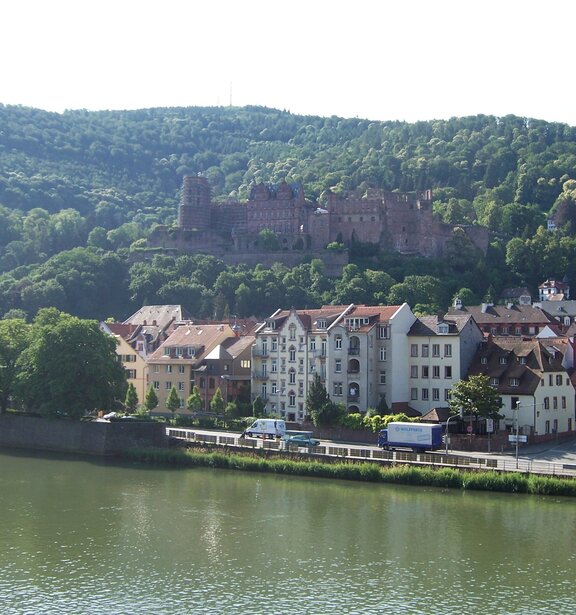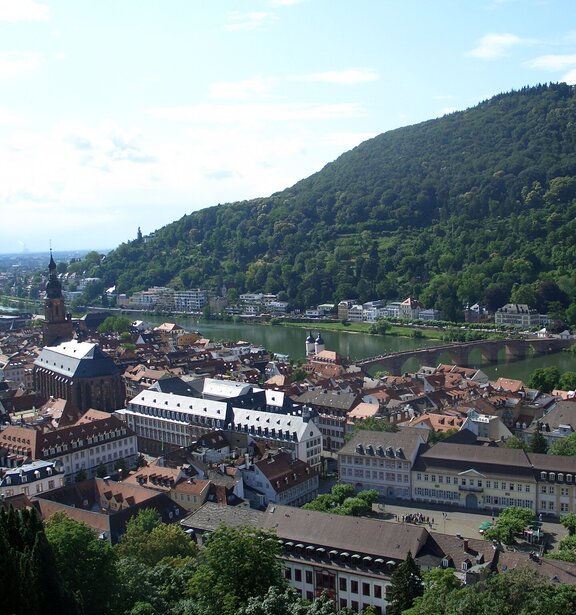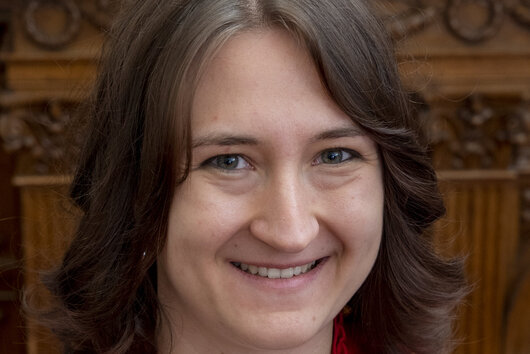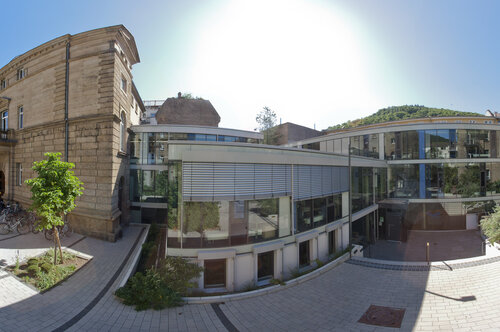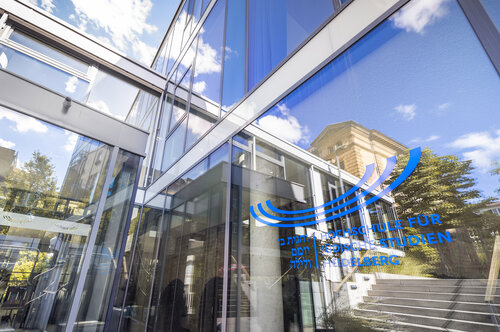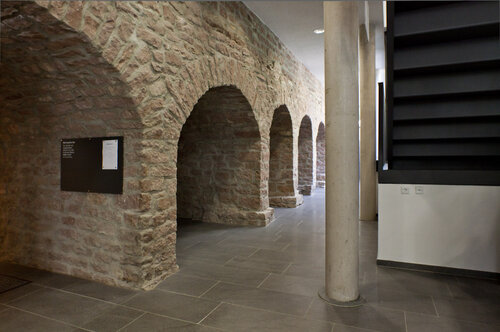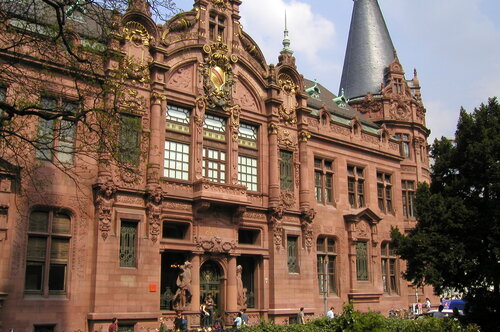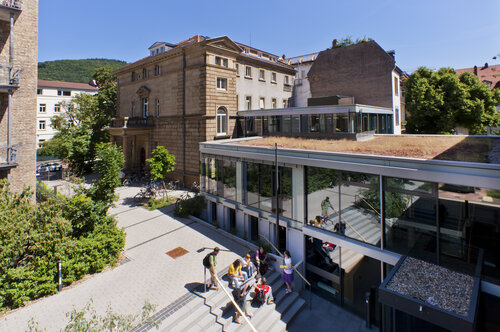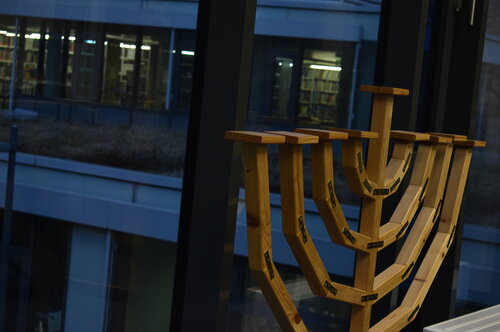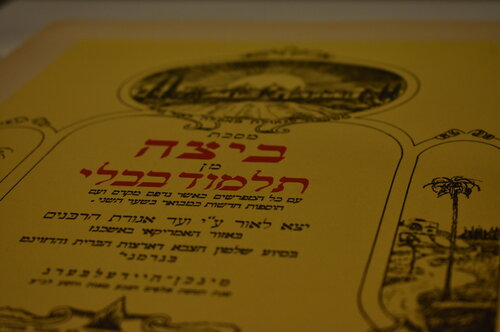M.A. History of Jewish Cultures
The most important Facts in brief
-
Degree Jewish Studies – History of Jewish Cultures (Joint Degree)
-
Start of the Studies Winter Semester
-
Course Language German / English
-
Further Study Locations Graz (Austria)
-
Standard Period of Study 4 Semester
-
Cooperation with Karl Franzens University Graz (Austria)
-
Deadline for Applications 15.6.
Aim of the Degree Program
The international consecutive joint degree Master's program in Jewish Studies - History of Jewish Cultures is primarily aimed at students who have not completed their Bachelor's degree in Jewish Studies, but in a cultural, humanities, social science or theological discipline. It is intended as a humanities and cultural studies course that deals with the diverse forms and changes of Jewish life in the past and present. In order to adequately grasp the complexity of the subject matter, the course is designed to be interdisciplinary. Accordingly, the following disciplines and subjects are involved: Jewish Studies, History, Theology, Religious Studies, Literary Studies, Philosophy, Gender Studies, Art History and Musicology.
The aim is to enable students to engage academically with the diversity of Jewish cultures in the past and present, taking into account the historical and socio-cultural context as well as the individual constitution of those involved in the communication process. Over the course of the entire joint degree Master's program, students will deepen their knowledge of cultural studies theories and the academic handling of these theories.
The course was developed in cooperation with the Karl-Franzens-University Graz (Austria). Thanks to the cooperation between the two partner universities, students have access to an extensive range of interdisciplinary courses in the field of Jewish Studies.
Courses offered by the Graz International Summer School and the International Summer University in Beer Sheva (Ben Gurion University of the Negev), which includes an intensive language course (Ulpan) in modern Hebrew, can also be completed as part of the degree program.
Bachelor's degree in a cultural, social science, humanities or theological discipline (e.g. Jewish Studies, History, German Studies, other literary disciplines, Theology, Philosophy, Religious Studies, Islamic Studies, Cultural Studies, Gender Studies, Art History or Social Sciences).
A maximum of 20 students are admitted per year. Students apply to the responsible study coordinator and advisor (in Heidelberg: viktor.golinets(at)hfjs.eu) at their chosen home university.
Detailed information can be found in the curricula and module handbooks. The Examinations Officeprovides information on examinations and examination regulations. the Student Advisory Service is also available to answer any further questions you may have.
In the first semester, basic knowledge of modern Hebrew is taught in a language course of 6 SWS, which is indispensable for
essential for academic work in the field of Jewish Studies. Further courses in Hebrew and/or Yiddish can be taken as part of the compulsory and free electives.
The language of instruction in Germany and Austria is generally German, in selected courses English.
In the first semester, basic knowledge of Jewish Studies and Modern Hebrew is taught. Building on this, students have a wide range of options in the 2nd and 3rd semesters to set their own individual focus according to their own interests. A short internship is also completed. The 4th semester is the final semester with a colloquium, Master's thesis and examination.
The first semester must be completed in Heidelberg; students who choose the Heidelberg University of Jewish Studies as their home university spend the second and/or third semester at the University of Graz.
| Semester | City | Modules | ECTS | |
|---|---|---|---|---|
| 1st semester | Heidelberg | Basic module (lecture series, tutorial, exercise, advanced seminar) | Compulsory Module | 20 |
| 2nd and 3rd semester | Graz or Heidelberg | MOdule 1-3 (2 of 3 must be elected): Module 1: History and Society; Module 2: Religion and Philosophy; Module 3: Literature, Art, Music | Compulsory Elective Module | 30 |
| Compulsory electives (selectable from the courses offered by the Heidelberg University of Jewish Studies and the Center for Jewish Studies at the University of Graz) | Elective Module | 15 | ||
| Free electives (12 ECTS) (selectable from the courses offered by the Heidelberg University of Jewish Studies, the University of Heidelberg, the Center for Jewish Studies at the University of Graz and the University of Graz) | Elective Module | 15 | ||
| and Short Work Placement | 3 | |||
| 4th semester | Heidelberg | Final module: Colloquium, Master's thesis and examination | Compulsory Module | 30 |
Application documents (original + 1 copy):
- Fully completed application form
- Personal letter of motivation (2-3 pages)
- Certificate of general higher education entrance qualification or a relevant subject-restricted higher education entrance qualification / foreign higher education entrance qualification
- Bachelor's or equivalent degree certificate; if this is not yet available at the time of application, proof of all previous academic achievements including grades (transcripts) is provisionally sufficient
- Proof of academic success / transcripts
- Proof of sufficient knowledge of German (for non-native speakers)
Proof of knowledge of Hebrew, if applicable - Curriculum vitae
Application deadline: June 15


